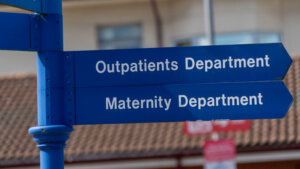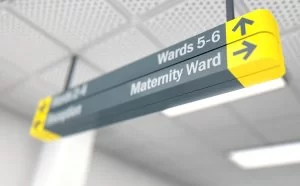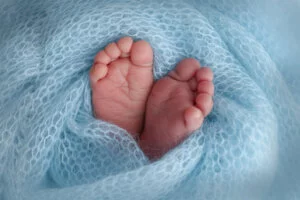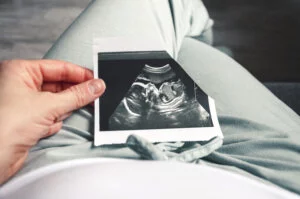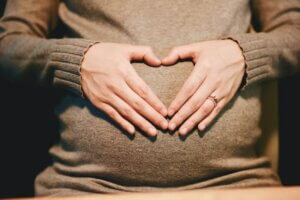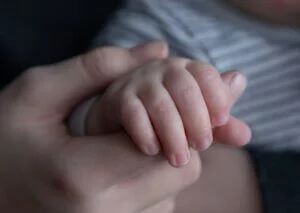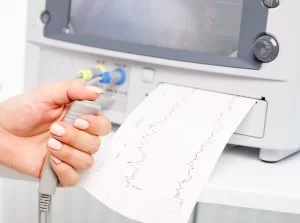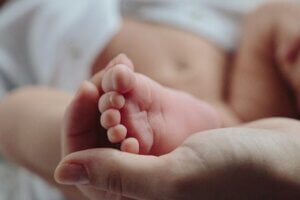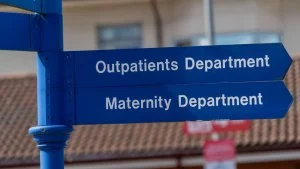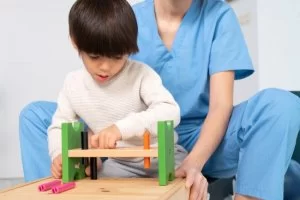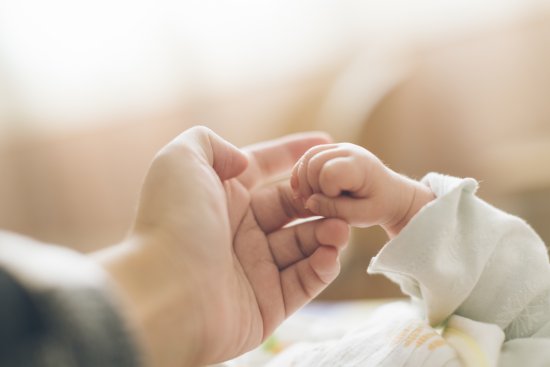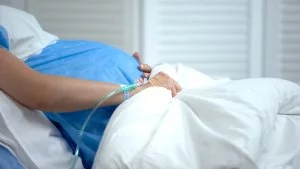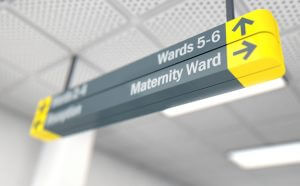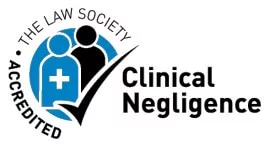Maternity Negligence
Pregnancy Negligence Claims
Find out how our maternity negligence solicitors can help you with your claim.

“Osbornes have specific expertise regarding birth negligence cases, including those which involve cerebral palsy and Erb’s palsy injuries.”

“Osbornes Law is an established firm which handles a breadth of complex and high-value clinical negligence matters.”
Expectant mothers place a lot of trust in medical professionals to ensure they have a safe and healthy pregnancy and birth. When the level of care falls below the expected standards, the consequences can be devastating. If you or your baby have been affected by pregnancy negligence, it’s important to speak to a birth injury solicitor who understands the exact type of pregnancy injury negligence that has occurred.
Table of Contents
What type of injuries can maternity negligence lead to?
Pregnancy negligence is an umbrella term. It refers to any health condition that results from substandard care received by the mother and her baby during pregnancy, delivery or immediately after the birth.
During pregnancy
Midwives and other medical professionals have a duty of care to ensure they keep a close eye on the mother’s health and well-being throughout the pregnancy. Failure to carry out regular antenatal checks could lead to a mother suffering from an undiagnosed medical condition that could harm the mother or baby further down the line.
Negligence can occur when a medical professional:
- Fails to take a proper history from the mother during an antenatal appointment (this may be due to a language barrier, and if this is the case, then an interpreter should be arranged)
- Fails to perform the correct antenatal checks
- Misdiagnose an abnormality during a blood test or scan
- Misdiagnoses a miscarriage
- Does not identify the signs of infection during pregnancy
- Does not manage pregnancy complications effectively
- Fails to assess and manage the mother’s medication during pregnancy
- Wrongful birth when medical negligence results in an unwanted pregnancy
These actions could lead to any number of conditions, including pre-eclampsia, gestational diabetes, ectopic pregnancy, uterine rupture or death of the baby in utero.
During delivery
It is essential that staff in the delivery room are highly trained and prepared for any eventuality during the birth. While most births are straightforward, a number of events have the potential to cause injury to the mother and her baby. Negligence can occur if medical staff:
- Fail to monitor the baby’s heartbeat
- Fail to identify when a caesarean section is necessary
- Perform an episiotomy incorrectly
- Fail to perform an episiotomy when it is medically indicated, leading to excessive tearing
- Misuse forceps or ventouse (vacuum suction)
- Make mistakes during caesarean section surgery, such as mistakes when administering anaesthesia
This is not a complete list. If the medical professionals fail to spot any signs of distress and do not act quickly enough or carry out the wrong procedures, this could lead to a number of birth injuries such as oxygen deprivation, brain injuries, stillbirth, cerebral palsy, Erb’s palsy, shoulder dislocation in the baby and physical injuries to the mother, including fractures, cuts and bruising.
After the birth
Once the baby is born, medical staff must have a duty to take further steps to ensure both mother and baby are happy and healthy. Midwives and health visitors will usually visit the home in the days and weeks after the birth. They carry out a number of checks to ensure mother and baby are well and are trained to identify the signs of postnatal complications such as:
- Postnatal depressions
- Postpartum haemorrhage
- Pelvic organ prolapse
- Jaundice in the baby
- Group B strep infections
- Failure to thrive
- Hydrocephalus
- Hypoglycaemia
Negligence can occur if medical professionals make an avoidable mistake, leading to injury or harm to the mother or baby.
NHS pays £4.4 billion in Medical Negligence Compensation
According to the UK’s National Audit Office, the cost to the NHS of medical negligence compensation is currently sitting at £4.4 billion. Around half of the compensation was for birth injury claims, with compensation for brain-damaged babies often coming to sums of £20 million.
The NHS – What can go wrong for mothers and babies?
According to the government’s statistics, although England is a safe place to give birth, when outcomes are compared to other high-income countries, too many children are stillborn or die soon after birth. In addition, around 50 women in England die every year from pregnancy-related causes.
The policy of the NHS since 2010 is that all women should always have a midwife or doctor with them during labour and birth. While in general, women’s experience of NHS maternity care is improving, almost 1 in 4 are still left alone during labour or birth, according to a 2018 report in the Guardian. Furthermore, midwives are frequently left to care for several women at once. The parenting charity the National Childbirth Trust has expressed concern that in a survey of over 18,000 women, 23% were worried about being left alone during a frightening and potentially dangerous moment in their lives. The fact that this fear becomes a reality in a quarter of cases reflects chronic understaffing in the NHS due to a nationwide shortage of midwives.
The risk of poor care can increase if a pregnant woman admitted to the labour ward does not speak English as her first language at all. Many maternity units are understaffed, and complications such as non-English speaking patients can sometimes only compound the difficulties in what is often a fraught, stressful and emergency situation. Women then are unable to understand what is happening, why it is happening, and, more importantly, they are unable to explain how they feel or what is happening to them in order to alert the medical and nursing staff to their urgent needs. This can increase the risk of serious harm to the mother or the baby.
Some stark examples of maternity care gone wrong
Despite medical care advances, cases of negligence around birth still hit the headlines in the UK. However, the cases are slow to be investigated. This is reflected in the fact that we are just now starting to hear of care failings dating from 2014.
Baby Ava
As reported in Metro, in 2014, baby Ava from Manchester died due to clinical failings during her delivery. Joanne’s mother arrived at the Stepping Hill Hospital, Stockport NHS Foundation Trust, believing she was in labour. However, she was told by medical staff that she was constipated and had a urinary tract infection. When Joanne started bleeding, Ava was delivered by caesarean section, but by this time, she had suffered severe brain damage due to lack of oxygen. Ava subsequently died.
In a letter to Ava’s parents, the chief executive of the Trust said, ‘I deeply regret that the standard of care that your daughter received was inadequate. I would like to express my deepest sympathy’.
Baby Boy
In May 2014, a consultant working in NHS Tayside ‘was involved in the delivery of a baby during which she failed to perform immediate delivery by caesarean section under general anaesthetic and proceeded with a natural delivery which was not clinically indicated’. The baby boy died during delivery. Scotland’s Evening Telegraph recently reported how the baby’s family is now suing the health board for more than £100,000.
Shocking outcome avoidable by caesarean section
The most recent and shocking case is reserved for the death of a baby in Ninewells Hospital in Dundee. The Independent reports that during delivery, the baby’s head became trapped and although various attempts were made to free him, disturbingly, his head became detached from his body, by which time he was already dead. A medical tribunal found that the doctor’s decision to proceed with a natural birth was negligent. The only appropriate action was a caesarean section.
Compensation payments cannot change what happened but can help
Across the water, in Ireland a case against Sligo General Hospital has been recently settled for the sum of 5 million euro. During his birth, incompetent clinical management led to Conor being starved of oxygen for nearly 2 hours. Conor subsequently developed cerebral palsy. The large financial settlement will provide Conor with the care he needs now and in the future.
1 in 700 births results in injury
2017 Health Secretary Jeremey Hunt made a specific issue about baby deaths and injuries. He said that out of around 700,000 births every year, around 1,000 will result in unexpected death or severe brain injury. Clearly, this number is too high.
The Healthcare Safety Investigations Branch was launched in April 2017 to review all unexplained serious harm or death cases. Hopefully, this organisation will help the NHS learn from previous mistakes and reach the Department of Health’s target of reducing serious birth-related incidents by half by the year 2025. If this has happened to you, get legal help. You could end up helping others.
All the parents in these cases sought help from legal teams who were experts in medical negligence and birth injuries. If you think that you or your baby has suffered due to medical negligence, specialist lawyers may be able to secure financial compensation for your family. Sometimes the only way to get the system to change is to make a case for compensation. By making a claim you could start the ball rolling, so others do not have to suffer as well.
How can we help?
The medical negligence team at Osbornes Law are highly experienced in handling maternity negligence claims. We can help you determine if you have grounds for a valid claim and, if so, how to proceed.
A successful pregnancy negligence claim can ensure that a mother or child with a lasting injury sustained due to medical errors has access to the best support for their needs. Compensation can pay for medical treatment and therapy, and we can help you secure interim payments so that you can access these treatments straightaway.
We have a reputation for representing families in pregnancy negligence claims and winning, so you can rest assured that your claim is in safe hands. It’s important to act quickly in pregnancy negligence cases.
If you think you may have a claim, please contact us for a free, no-obligation assessment of your case. Call 020 7485 8811 or fill in the contact form below.
Additional resources
- In addition to NHS complaints procedure and the civil litigation, there is the Health and Safety Investigations Branch (HSIB).
- Read our NHS Payouts Compensation Guide.
FAQs
Can you sue the NHS for birth trauma?
Yes, it is possible to sue the NHS for birth trauma if there is evidence of negligence or substandard care during childbirth that resulted in injury to the mother or baby.
How do I make a maternity negligence claim?
- Contact our specialist maternity negligence solicitors. We’ll meet you face-to-face before taking the case on. The appointment can take place whatever is best for you. We will assess your case and advise whether you have a valid claim.
- Following our meeting, we’ll advise you about the prospects of success, the potential value of your claim, and how long it will take. If we all agree that Osborne Law should take your case on, we will discuss the funding of your claim, including whether to run your claim under a No Win No Fee agreement.
- Gather copies of all relevant medical records, including your prenatal records, records of the birth, and any postnatal care. These documents will provide essential evidence for your claim.
- We may need to arrange for an independent medical assessment to provide an expert opinion on the care you received and the impact of any negligence.
- To make a successful claim, you typically need to prove that the care provided fell below the accepted standard of a competent healthcare professional and that this directly caused harm to you or your baby.
- We will send a detailed ‘Letter of Claim’ to the NHS Trust or healthcare provider, outlining the allegations of negligence and the resulting harm. This letter serves as formal notification of your intent to claim compensation. The NHS Trust or healthcare provider will have four months to investigate and respond to your claim. They might accept responsibility, offer a settlement, or deny the claim.
- If the NHS Trust or healthcare provider accepts responsibility, we will enter into negotiations for a compensation settlement. This settlement should cover damages, any additional care or equipment costs, loss of earnings, and more.
- If a settlement can’t be reached or the claim is denied, we may advise proceeding to court. Most cases, however, are settled before reaching this stage.
- Remember that there are time limits for making a claim. In the UK, you generally have three years from the date of the incident or from when you first became aware of the negligence to make a claim.
How long do you have to make a claim?
For maternity injuries to the mother, you have 3 years to make a claim. For the child, you have 3 years from the child’s 18th birthday.
If you are planning to make a claim for stillbirth medical negligence, it is advisable to speak to a solicitor as soon as possible, in order to start building your case immediately. There may be many costs involved in looking after an injured child, including therapies, equipment and specialist education. We can help secure interim payments as early as possible in your case. These payments can be extremely helpful in providing financial support for your family, especially if you have to give up work.
How much compensation can I claim for maternity negligence?
Many families ask how much compensation they can claim, but there is no set amount. The goal of compensation is to meet the additional financial needs of the mother or injured child.
All cases are different. Medical reports are an important part of the process, as they help us to understand the severity of the injuries and the impact they have on the mother or child’s life.
Here are some of the things that your birth injuries lawyer will take into consideration when calculating your compensation:
- The pain and suffering caused by the injury
- The lifelong cost of medical care and rehabilitation
- The cost of any special equipment and alterations to your home
- Money lost through changes to work, for example, if you have to leave your job or reduce your hours to care for a birth-injured child
- The cost of everything your child might need in the future, such as a care provider, special education and personal equipment as your child grows
According to NHS Resolution, the average payout for birth injury is £50,000. Read our case studies to find out more about how we have helped our clients claim compensation.
Speak to a birth injury lawyer
Call us 020 7485 8811
Email us Send us an email and we’ll get back to you
Jodi Newton holds over 20 years of experience in birth and surgical injury cases, including those pertaining to cerebral palsy, negligent treatment of sepsis, and negligent A&E treatment.
Practice head Stephanie Prior is noted for her expertise in birth injury litigation, including cases resulting in serious cognitive injuries.
The team handles a host of complex maternal claims, including cognitive injuries as a result of delayed birth treatments, cerebral palsy, and vaginal mesh litigation.
Stephanie Prior is head of the clinical negligence department at Osbornes Law. She acts on a wide range of issues, including claims for brain injuries sustained at birth and delays in diagnosis. She frequently represents clients in fatal claims involving surgical error.
"Stephanie Prior is the leading spokesperson on the high profile maternity scandal cases involving many NHS Trusts."
Stephanie has developed a particularly strong reputation for her handling of birth injury claims, as well as cases concerning surgical negligence and delays in surgery.
Insights & Client Stories VIEW ALL
- 6.5.2025
Six-Figure Settlement for Negligent C-Section Delivery
Osbornes secures a six-figure settlement following a negligent caesarean section delivery Jodi Newton, Partner and head of our Obstetric and...
Read more - 14.10.2024
Multi-Million Settlement in Cerebral Palsy Negligence Case
Judge awards multi-million settlement in cerebral palsy medical negligence claim Jodi Newton, Partner and specialist medical negligence lawyer at Osbornes...
Read more - 19.9.2024
Report highlights failings in maternity care
The Care Quality Commission (CQC) has recently carried out a national review of 131 maternity inspections between 2022 and 2024, finding that failures...
Read more - 28.6.2024
£55,000 Settlement for Stillbirth Claim Against Chelsea and Westminster...
Successful Settlement for Stillbirth Claim Against Chelsea and Westminster Hospital NHS Foundation Trust Background Nick Leahy, an Associate in our...
Read more - 5.1.2024
Delayed Pre-Eclampsia Diagnosis Results in Loss of Baby
Introduction to the case Nick Leahy, Associate in our Clinical Negligence department, has recently settled a birth injury claim against...
Read more - 23.11.2023
Claim against Bradford Teaching Hospitals NHS Foundation Trust
High-risk pregnancy following previous miscarriage Osbornes acted for a Claimant, C, in her birth negligence claim against Bradford Teaching Hospitals...
Read more - 31.8.2023
Hyponatraemia – Symptoms, Causes & Negligence
What is hyponatraemia? Hyponatraemia is a condition where sodium levels fall below a certain level, which can be dangerous. All...
Read more - 23.3.2023
Private Pregnancy Scans and Substandard Care
In the news, it has been reported that private clinics that offer pregnancy scans to women are not meeting the...
Read more - 7.3.2023
5-figure settlement for iron infusion claim
Successful claim following post c-section iron infusion Osbornes Law have reached another successful outcome for a Claimant, who pursued a...
Read more - 9.2.2023
Perineal tear claim settles for 6-figure sum
Successful claim for mother with third-degree perineal tear Osbornes Law recently settled a birth injury claim for a woman who...
Read more - 2.10.2022
Tragic Case Involving a Home Water Birth
Introduction to the case Nicholas Leahy is acting for a young woman who had a water birth at home and...
Read more - 21.9.2022
Are maternity services safe? – Part 2
In April last year I wrote a piece about government setting up a taskforce to look into why there are...
Read more - 8.9.2022
Poor interpretation of CTG can result in stillbirth...
Poor interpretation of a Cardiotocograph, more commonly known as a CTG, is a leading cause of stillbirth and brain injuries...
Read more - 2.9.2022
Mother & Baby Suffer Life-changing Injuries
Claim after mother and baby suffered life-changing injuries during birth Jodi is acting for both mother and baby in a...
Read more - 29.6.2022
Nottingham Maternity: Donna Ockenden to Chair Independent Inquiry
An interim report on the state of maternity services at Nottingham University Hospitals NHS Trust has just been released. However,...
Read more - 23.5.2022
Uterine Rupture Claim Against King’s College Hospitals
Significant settlement in uterine rupture claim The birth injury solicitors at Osbornes Law recently secured a significant settlement for a...
Read more - 23.2.2022
Women from ethnic minorities experience worse maternity care
It has been reported today that the government has set up a new task force to look into why there...
Read more - 27.1.2022
Six-figure claim allows family to move home
Six-figure compensation payment for a client Jodi Newton has secured a six-figure compensation payment for her client with cerebral palsy....
Read more - 24.1.2022
Likely settlement of £15-20 million
A client who suffered cerebral palsy injuries at birth was awarded £200,000 as an interim payment in a claim against NHS...
Read more - 12.1.2022
Wrongful birth claim successfully settled
Background to the case Our client, J, fell pregnant in October 2015 and took the difficult decision to undergo a termination....
Read more - 2.1.2022
Justice for Family Who Faced Loss of Newborn
Osbornes Law specialises in assisting families who have experienced birth injuries. We have represented families who have faced the loss...
Read more - 17.11.2021
NICE revises guidelines on Induced labour
Most babies are born naturally at around 40 weeks gestation. However, some pregnancies continue for longer. According to data from the...
Read more - 2.10.2021
Cerebral Palsy Compensation Supports Rehabilitation & Housing
Six-figure sum compensation for client with cerebral palsy Jodi achieved a six-figure sum compensation for her client with cerebral palsy....
Read more - 1.7.2021
Stillbirth following water birth at home
Nicholas Leahy acted for a young woman who had a water birth at home and two midwives were allocated to...
Read more

